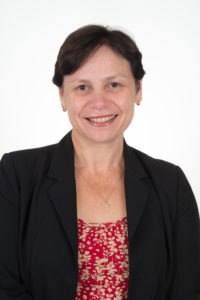
2016 Conference: Bernadette McCabe
WASTE NOT, WANT NOT:
The Circular Economy to Food Security
29-30 August 2016, Canberra

| Conference Home Topic Overview Conference Invitation Conference Program Speakers’ Bios & Abstracts Sir John Crawford Address Fees & Registration Conference Scholars Conference Sponsors Conference Media |
Conference SpeakersAssociate Professor Bernadette McCabe
Bernadette McCabe’s specific research interest is in energy capture and resource recovery of waste and has attracted over $1.3M in nationally competitive grants and / or research contracts since 2010. She was recently awarded an Advance Queensland Mid-Career Research Fellowship working in partnership with NH Foods Australia, Oakey Beef Exports. She has expertise in the monitoring of wastewater, biogas production and assessment of biosolids as fertiliser replacement. Bernadette collaborates at an international level as National Team Leader representing Australia in the International Energy Agency (IEA) Bioenergy program Task 37: Energy from Biogas. IEA Task 37 is an international working group made up of 15 member countries that exchange global best practice trends in biogas production. Through this role she has established a wide network of national and international research, industry and government contacts. Waste-to-Energy Innovations Powering a Circular EconomyAbstractThe benefits of better food waste management extend to community building, liveability and poverty reduction in cities. Waste-to-energy technologies provide elegant solutions for food waste management, providing tangible and usable products including energy and fertiliser and attractive environmental and social benefits. When combined with food security they provide a powerful case for city and rural communities alike. The majority of waste-to-energy facilities in the world are in Europe, Japan, and the US. However, in developing countries such as African nations, a very limited share of waste is recovered and reused, and only major or capital cities have waste management systems. In a number of these countries, the use of waste to generate electricity could have a significant impact. Waste can have a very high contribution to providing electricity to citizens and alleviating energy poverty, especially in countries with low access to electricity and reduced electricity consumption per capita. For isolated, rural and less wealthy populations, the benefits of an effective circular economy are even more direct than for a Western urban population. The production of biogas from organic waste via anaerobic digestion is one such technology that fits perfectly in a circular economy and engenders the energy independence needed by these communities. This case study presentation will provide an overview of the different waste-to-energy technology options that exist and will highlight some key innovations across the globe. A particular focus will be on novel approaches that have been used in developing countries and will highlight the impacts on food loss and waste, livelihoods and food security. |


